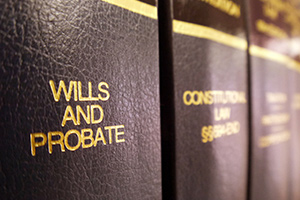
To learn more about what is involved in a will in Maryland, reach out to our skilled Montgomery County will drafting attorney today.
What is a will in Maryland?
The goal of a last will and testament is to make sure that surviving family members and friends can obey your wishes when it comes time to disperse your assets. Not only does a will name who gets your assets but also who is in management of them. The last will and testament only control assets that are owned separately and are not attached to a beneficiary.
In the event that an individual passes away without a will, he or she will have died “intestate.” This means that there is no plan for your assets. As a result, your assets will be obtained and distributed by the state of Maryland, instead of how you would like them to be allocated. While this may not appear to be a big deal at the moment, it is important to recognize that this can cause several different issues for your loved ones in the future. For example, your loved ones may have to go through the long and costly process of litigation. This can be extremely stressful, especially during a time of mourning. To avoid this, you will want to have a skilled attorney on your side that can help assure that you and your loved ones’ futures are covered.
Who is named in a will?
Once you have created your will, you can rest easy knowing that your assets will pass to your loved ones after you die. If you name someone to inherit a part of your estates, for instance, an asset or possession, this individual is referred to as a beneficiary. There can be a number of beneficiaries in an estate. An executor is another individual that is called in the will. The executor refers to the person who is in charge of administering the estate among the beneficiaries as is outlined in the document. These individuals have the legal responsibility to take care of the deceased person’s excess financial obligations. They may be named in the will expressly or appointed by the court. Some of their duties involve supplying accounting to the court, paying outstanding debts and taxes, and collecting, protecting, and distributing assets according to the will’s specifications. This is a crucial role to take on due to the needed duties. They may also have to meet with professionals, like accountants, lawyers, or other individuals to manage the estate. If an executor fails to carry out their required duties, they can be discharged from this position.
If you would like to learn more, do not wait to reach out to our Montgomery County estate planning attorney today.
Contact our experienced Montgomery County, Maryland firm
The attorneys at JD Katz have years of experience compassionately guiding clients in Maryland through the estate planning and administration process. Our firm also has experience with matters of elder law, business law, tax law, and litigation. For a legal team that will put your needs first, contact JD Katz today.
